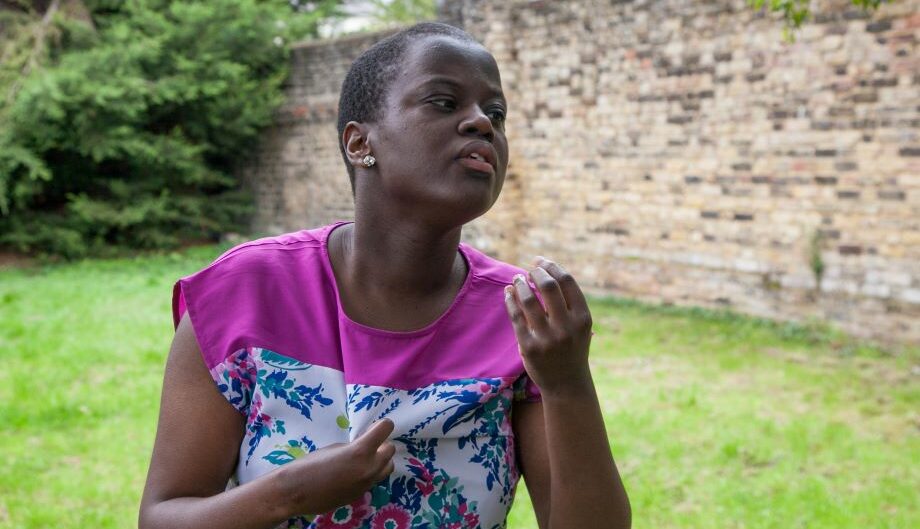Terminology: Challenging Behaviour
The term ‘challenging behaviour’ first came to prominence in the UK through the work of the King’s Fund Centre. The expression was designed to emphasise ‘… that such behaviour represents challenges to services rather than problems that individuals with learning disabilities in some way carry around with them. If services could rise to the “challenge” of dealing with these behaviours they would cease to be “problems”. The term challenging behaviour places the focus of discussion on services rather than on the individuals showing the behaviours.’[1]
It was widely adopted by bodies such as the Department of Health, NICE, the British Psychological Society, the Royal College of Psychiatrists, the Royal College of Speech and Language Therapists, Mencap and the International Association for the Study of Intellectual and Developmental Disabilities. It therefore has both national and international validity.
The most widely used definition describes challenging behaviour as ‘culturally abnormal behaviour(s) of such intensity, frequency or duration that the physical safety of the person or others is likely to be placed in serious jeopardy, or behaviour which is likely seriously limit use of, or result in the person being denied access to ordinary community facilities.’[2] Others have suggested that such behaviours may also be defined by the fact that they can constitute a significant additional disability by:
- interfering with the learning of new skills or by excluding the person from important learning opportunities,
- causing significant stress for the person themselves and for those who live and work with the person, thereby also impairing the quality of their lives to an unreasonable degree,
- resulting in service responses that are restrictive or aversive.[3]
More recent descriptions of challenging behaviour (e.g., Gore et al, 2022)[4] retain these core elements. Challenging behaviours can be many and varied, but aggression towards others, self-injury, and environmentally destructive behaviours tend to be the most reported. Though they may be distressing, these behaviours are functional for the person concerned in that they typically help them obtain social outcomes (such as gaining or switching off the attention of others, being able to access favourite objects or pastimes) and/or automatically increase or decrease levels of stimulation in ways that behaving in non-challenging ways do not. Viewing challenging behaviour as a form of (non-intentional) communication has therefore become a popular metaphor and fits with the original meaning of the term – it often represents a person’s best way of communicating an unmet need and getting this met.
The CBF continuously works on improving its use of terminology in partnership with family carers, practitioners, and researchers. We aim always to support family carers to describe their experiences in any way that they feel best represents their and their relative’s situation. We are keen to understand new ways of defining and understanding behaviour and will update this page as appropriate if new evidence emerges.
Read more about the specific behaviours that are associated with it
FAQ – the term “challenging behaviour”
[1] Blunden, R. & Allen, D. (eds.) Facing the Challenge. An ordinary life for people with learning difficulties and challenging behaviour. King’s Fund Centre.
[2] Emerson, E. & Einfield, S.L. (2011) Challenging Behaviour. Cambridge University Press.
[3] Zarkowksa, E. & Clements, J. (1996) Problem Behaviour and People with Severe Learning Disabilities. The STAR Approach. London: Chapman and Hall.; Royal College of Psychiatrists, British Psychological Society, Royal College of Speech and Language Therapists (2007) (revised 2016) Challenging Behaviour-a unified approach
[4] Gore, N.J., Sapiets, S.J., Denne, L.D., Hastings, R.P., Toogood, S., MacDonald, A., Baker, P., and the PBS Working Group (in alphabetical order): Allen, D., Apanasionk, M., Austin, D., Bowring, D.L., Bradshaw, J., Corbett, A., Cooper, V., Deveau, R., Hughes, J.C., Jones, W., Lynch, M., McGill, P., Mullhall, M., Murphy, M., Noone, S., Shankar, R., & Williams, D. (2022). Positive Behavioural Support in the UK: A State of the Nation Report. International Journal of Positive Behavioural Support, 12(1).



